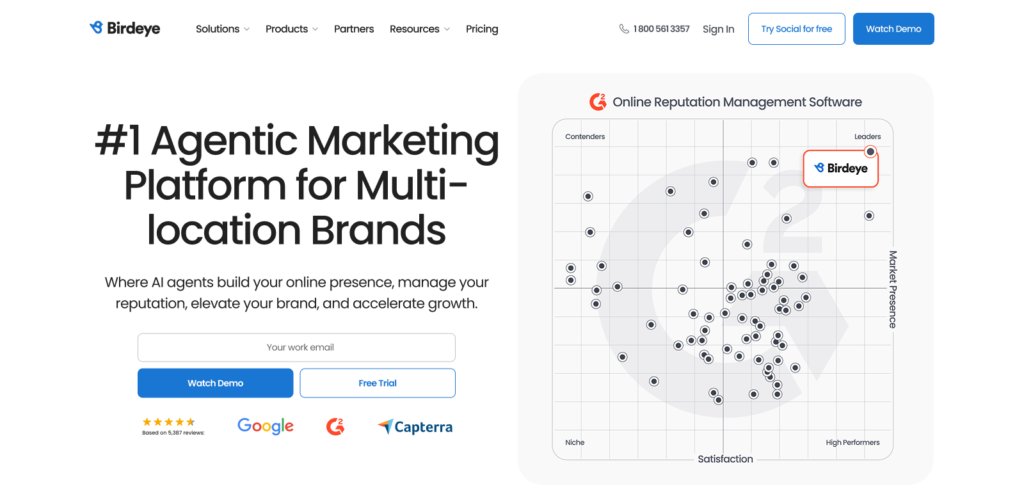Hotel reputation management shapes how travelers interpret a property long before they ever step inside. With 68% of consumers checking online reviews before engaging with a business, a hotel’s digital presence has become a decisive force in setting expectations and establishing trust. When that online footprint feels consistent and authentic, travelers approach their stay with confidence and clarity; when it does not, they may simply choose another property.
Summary
Effective hotel reputation work depends on organized systems that help teams coordinate information, analyze recurring patterns, and maintain standards across every channel where guests interact. Hotels can strengthen performance by using structured processes to evaluate service gaps, refine operations, and support staff with tools that simplify daily communication. With strong internal alignment and clear oversight, properties can maintain steady performance, enhance guest experience, and protect long-term brand reliability.
This guide explores how hotels can build a reliable reputation management strategy to maintain guest confidence, prevent revenue loss, and stand out in a crowded market.
Table of contents
- 10 Important tips to improve your hotel reputation management strategy
- Top hotel reputation management tools you should know in 2026
- How Birdeye helped Medieval Times diners & tournament boost their reputation
- FAQs on hotel reputation management
- How Birdeye helps with hotel reputation management
- The bottom line
10 Important tips to improve your hotel reputation management strategy
- List your property on top review sites
- Watch out for negative reviews
- Respond to negative reviews
- Encourage delighted guests to review your property
- Stay active on social media
- Track conversation you’d otherwise miss
- Get involved with the local community
- Share your positive reviews
- Monitor your competitor’s progress
- Fix your online listings
It’s now necessary that you, as a hotelier, get to grips with your hotel reputation management strategy and grow your business. Let’s now look at some vital moves (one by one) that you can make to guard your hotel’s reputation.
1. List your property on top review sites
Review sites that also allow customers to book should be on top of your list. These include Booking.com, Airbnb, and Expedia. You know that customers make their choices based on these. And compared with other media that affect your reputation, you have an adequate amount of control over your reviews.
2. Watch out for negative reviews
If you’ve managed to create a good reputation for your hotel – and a great star rating to go with it – negative reviews can be dangerous.
Reviews are typically listed in the newest first chronological order. So as soon as a harsh review is posted, it appears first and is easy to find. The sooner you spot such reviews, the better your chances of improving.
3. Respond to negative reviews
While it is never a great experience to get negative feedback from your customers or witness your business getting slammed in public, there is one thing you can do to repair the damage that has been done – a quick response to the negative review.
It sure is very tempting to return the fire, but instead you should take a deep breath and respond with a polite note, acknowledging the customer’s concern and thanking them for the valuable feedback. Customers want to feel heard – particularly the angry ones – and sometimes a genuine, understanding response is all that is required. But, it needs to be timely, otherwise, they’re never going to change their review.
If they are unhappy about the cleanliness of the room, ask for more details and consider the matter. If they didn’t relish the food, take their advice and make changes wherever possible. Make responding to negative reviews, an essential aspect of your hotel reputation management plan.
4. Encourage delighted guests to review your property
It’s an excellent idea to ask a happy customer to write a review for your property, however, the key is to do it smartly.
Explain the importance of the review for your business. If the customer feels connected with you, sparing a few moments to post a review will not feel like a burden. This works exceptionally well for boutique hotels with a personal touch.
Train your front desk staff to politely ask for reviews, especially when they know that the customer has enjoyed their stay.
5. Stay active on social media
Make social media an important part of your hotel reputation management strategy. Although you should focus on review sites, do not ignore the conversations, critiques, and comments on social media sites such as Facebook, Twitter, and Instagram. These can be a valuable source of feedback for your hotel. Also, keep a track of negative feedback on social channels and respond immediately.
6. Track conversations you’d otherwise miss
Since social media is widespread and customers don’t always tag your property when posting comments or pictures, it is impossible to track everything that is being said about your property. Using social listening tools, you can keep a track of what customers are talking about your hotel – positive or negative.
Thanks to the amazing @ symbol, efficient social listening tools now help you track these mentions and respond right away.
7. Get involved with the local community
A great idea to get customers to do a “word-of-mouth” marketing for you is by involving them on a personal level. Once a month, allow the local population to take a tour of your hotel and ask them for their suggestions and feedback. You can plan a tour or dance and drinks evening. Make sure you invite a group of socially active people, and you’ll soon have plenty of user-generated photos to decorate your social media profiles.
For instance, Hotel Hoxton in Paris opened its doors to the locals after the manager of the hotel got in touch with them through local Facebook groups.
8. Share your positive reviews
If you receive a positive review, make the most of it. Share it on your social media pages and make sure that it reaches as many people as possible. You can also reach out to bloggers and social media influencers to promote positive feedback.
9. Monitor your competitor’s progress
Wondering why customers are booking with your competitor and not you? Using tools like competitor analysis benchmarking, you can know your competition inside out. Some of the things that you can analyze are the influencers they work with, publications they are featured on and their websites and blog. Competitor analysis is another powerful tool to keep a check on the progress of your hotel reputation management plan.
10. Fix your online listings
Last and most importantly, ensure that your name, address and phone number are accurate on different web directories and business listing management websites. Customers who are unable to reach your property will not only write a bad review for your hotel but will also choose your competitor. Don’t forget to add fixing your online presence to your hotel reputation management checklist.
Top hotel reputation management tools you should know in 2026
To make your reputation management plan more effective, brands can use tools designed specifically for hotels. These platforms simplify the process of collecting feedback, responding to reviews, and tracking online performance.
Here are five hotel reputation management tools to consider:
1. Birdeye

Birdeye is an all-in-one reputation and experience management platform used by 200,000+ businesses, including leading hotel groups. Built for enterprise hospitality teams, it streamlines how hotels collect reviews, respond to guests, manage listings across 200+ sites, and monitor overall online performance. With AI-powered automation and a 4.8★ G2 rating, Birdeye helps hotel brands handle high volumes of guest feedback while uncovering insights that strengthen satisfaction and loyalty.
Its suite of AI tools, Reviews AI, Listings AI, Insights AI, Social AI, and Competitors AI keeps hotel teams informed at every stage of the guest journey. From understanding sentiment trends to benchmarking against competing properties, Birdeye provides the data and capabilities needed to improve visibility and increase direct bookings. For enterprise hospitality brands, it’s a complete platform that turns online reputation into measurable growth.
2. Revinate
Revinate enables hotels to gather guest feedback through post-stay surveys and online reviews. It provides actionable insights to improve guest satisfaction and loyalty while offering tools for guest communication and targeted email marketing.
3. TrustYou
TrustYou consolidates online reviews, guest surveys, and social media mentions into a single dashboard. It provides sentiment analysis and competitor data, allowing hotels to make informed decisions and strengthen their reputation strategy.
4. ReviewPro
ReviewPro focuses on guest intelligence by analyzing feedback from multiple channels. It provides hotel operators with performance scores, trend reports, and service improvement suggestions to enhance overall guest experience.
5. Podium
Podium helps hotels gather reviews and communicate with guests through messaging, SMS, and webchat. It simplifies the review collection process and improves response rates, leading to higher visibility and credibility online.
This way, using the right tools makes it easier to manage feedback, respond faster, and maintain a positive image that attracts more guests to your property.
How Birdeye helped Medieval Times diners & tournament boost their reputation

Medieval Times Dinner & Tournament offers interactive dinner shows featuring medieval games and jousting. With guests sharing experiences online, managing feedback was critical to maintaining their brand image.
Challenge
Hundreds of daily social mentions from diners and influencers were overwhelming, making it hard to track feedback or address issues promptly.
Solution
Birdeye provided a single platform to:
- Monitor social mentions in real time
- Engage with guests and influencers quickly
- Prioritize conversations by sentiment and source
- Close the loop on feedback to improve experience
Outcome
- Maintained a 4.5-star nationwide rating
- Increased social buzz and review volume
- Strengthened guest loyalty and online visibility
- Created a digital experience as engaging as the live show
Key takeaway
Real-time monitoring and engagement help brands respond quickly, amplify positive mentions, and turn feedback into actionable improvements—principles hotels can adopt to boost reputation and bookings.
FAQs on hotel reputation management
Hotels should focus on high-traffic platforms like Booking.com, Expedia, Airbnb, TripAdvisor, and Google Reviews, where most travelers make booking decisions.
Ideally, respond to all reviews within 24–48 hours to show attentiveness and care toward guest feedback.
Yes, politely asking satisfied guests for reviews is encouraged and helps build credibility and visibility.
Track metrics like star ratings, review volume, response rate, sentiment trends, and booking conversions from review platforms.
Deliver excellent service, ask happy guests for feedback, and make it easy to leave reviews through follow-up messages.
Audit listings monthly to ensure your hotel’s name, address, phone number, and links are accurate across all platforms.
Yes, AI tools like Birdeye automate review monitoring, generate personalized responses, and analyze guest sentiment at scale.
High-quality images of rooms, amenities, dining areas, and local attractions help build trust and influence booking decisions.
How Birdeye helps with hotel reputation management
Birdeye gives hotels the AI-powered tools to manage reputation, visibility, and guest experience seamlessly, all from one platform built for hospitality.
Key capabilities include:
- Reviews AI Agents: Collect, monitor, and respond to guest reviews across hundreds of sites to build a trusted reputation.
- Social AI Agents: Plan, create, and schedule engaging posts that highlight your property, offers, and guest experiences.
- Listings AI Agents: Keep hotel information accurate across directories to boost visibility and attract more direct bookings.
- Search AI: Increase discoverability across Google, ChatGPT, Perplexity, and other AI-driven search platforms.
- Insights AI: Analyze guest sentiment, identify recurring feedback themes, and receive data-backed suggestions to enhance service.
- Competitors AI: Compare performance, reputation, and sentiment across competitors to uncover areas for improvement.
- Messaging AI: Centralize guest communication across channels, with AI-assisted responses to save time while providing a personal touch.
- Chatbot AI: Engage website visitors, answer questions instantly, and book reservations, delivering a seamless guest experience 24/7.
- Surveys AI: Capture guest feedback with automated surveys and analyze sentiment to uncover opportunities for improvement.
- Integrations: Connect Birdeye with your PMS, CRM, and other hotel systems to unify data, automate workflows, and provide a holistic view of guest engagement.
This way, Birdeye unites automation, analytics, and AI to help hotels build stronger reputations, attract more guests, and deliver memorable stays across every location.
The bottom line
In a world where everyone’s a critic, where a star rating or an online review can make or break a business, controlling your reputation is a priority.
In the end, it’s all about establishing an effective hotel reputation management strategy and executing it in its entirety. Comprehensive online reputation management solutions like Birdeye make this easy for you. From getting more reviews, responding to them, sharing them on social media, fixing your online listings, to listening to what customers are talking about you on their social channels, you can perform all these tasks with just a few clicks using Birdeye.
We want to help you take your hotel reputation management plan to the next level. Watch a free demo today.

Originally published









